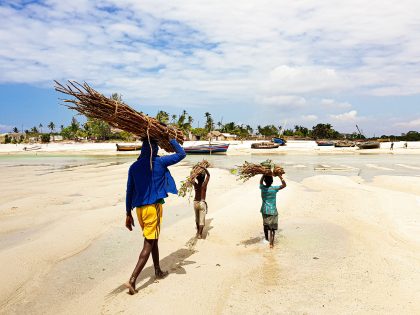African “refugeeness” as it is currently depicted in the media, policy, and even academia is an essentialist physical image conflating material deprivation and multiple victimhoods.
04.01.202
Therein lies the contemporary pathologization of African refugees. Post-independence African refugees have become the embodiment of an apathetic state symbolized by victimhood and “bare life.” More than being a legal status, the refugee status, as it is borne by Africans, has an essence of “refugeeness.” African “refugeeness” as it is currently depicted in the media, policy, and even academia is an essentialist physical image conflating material deprivation and multiple victimhoods. It blends insecurity with poverty, lack of education, old age, and diseases. Its gender dimension is made up of vulnerable femininity and desperate motherhood, represented by sexual and gender-based violence and malnourished babies and toddlers in a category Cynthia Enloe (1992) in the edited collection, Collateral Damage-‘New World Order’ at Home and Abroad, aptly describes as “womenandchildren.” These women are gender-balanced by masculinity in a state of dangerous vulnerability, which makes them the object of both empathy and antipathy.
Over the years, the muting power of images has rendered African refugees an undifferentiated although gendered mass of victimhood. This has become the yardstick against which “refugeeness” as an essentialist status or the genuineness of asylum claims are measured in public opinion. Refugees who do not fit the stereotypical image of “refugeeness” as a state of multiple victimhoods are dismissed as spurious. It would seem that it is only the poor, aged, infirm, and female who flee violent conflicts. Yet, the reality of violent conflict is that it also displaces the well-to-do, young, healthy, and male. African refugees are made up of varied demographic characteristics and come from diverse backgrounds that cannot be homogenized into a single socioeconomic status captured by essentialist discourses framed around the forlorn image of the African refugee.
This article has been adapted from its original source
Statements, comments or opinions published in this column are of those of the author(s) and do not necessarily reflect the editorial policy of Warsan magazine. Warsan reserves the right to moderate, publish or delete a post without prior consultation with the author(s). To publish your article or your advertisement contact our editorial team at: warsan54@gmail.com

